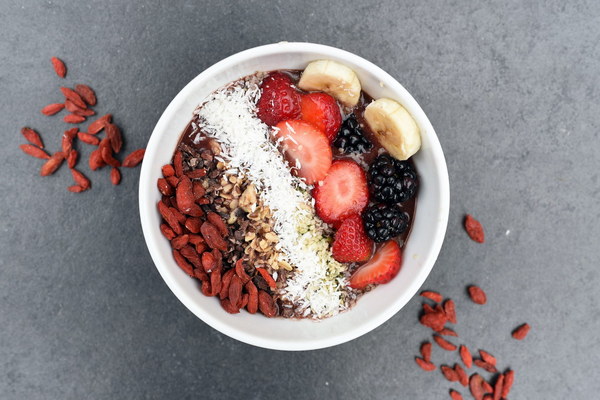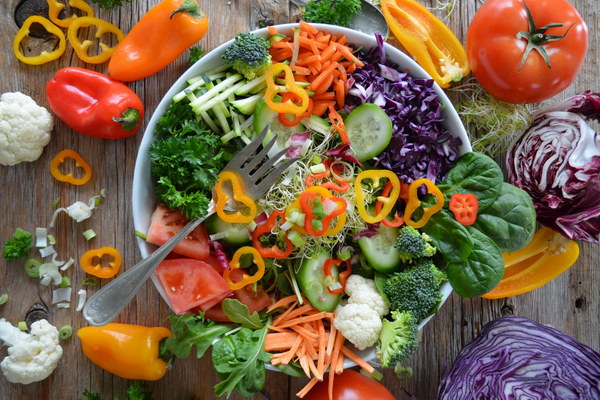Nourishing Your Way to Gut Health A Guide to Digestive Recovery Through Nutrition
Introduction:
Gut health is essential for overall well-being, as it plays a crucial role in digestion, absorption of nutrients, and immune function. When the digestive system is compromised, it can lead to various issues such as bloating, constipation, diarrhea, and discomfort. Recovery through nutrition is a gentle yet effective approach to restore gut health. This article provides a comprehensive guide to digestive recovery through targeted dietary interventions.
Section 1: Understanding the Importance of Gut Health
The gut is home to trillions of microorganisms, collectively known as the gut microbiome. These bacteria are vital for maintaining a healthy immune system, synthesizing vitamins, and aiding in digestion. When the gut microbiome is imbalanced, it can lead to digestive disorders and other health problems. Recognizing the significance of gut health is the first step towards recovery.
Section 2: Key Nutrients for Gut Healing

To promote gut healing, it is essential to consume a diet rich in the following nutrients:
1. Prebiotics: These are non-digestible carbohydrates that serve as food for beneficial gut bacteria. Foods high in prebiotics include bananas, asparagus, onions, garlic, and leeks.
2. Probiotics: These are live microorganisms that can improve gut health. Foods containing probiotics include yogurt, kefir, sauerkraut, kimchi, and miso.
3. Fiber: Soluble and insoluble fibers are both crucial for gut health. Soluble fiber helps to slow down digestion, while insoluble fiber adds bulk to stool, aiding in regular bowel movements. Good sources of fiber include fruits, vegetables, legumes, whole grains, and nuts.
4. Omega-3 Fatty Acids: These essential fatty acids have anti-inflammatory properties and can help reduce gut inflammation. Foods rich in omega-3s include fatty fish, flaxseeds, chia seeds, and walnuts.
5. Vitamin D: This vitamin is essential for gut health and immune function. It can be obtained through sunlight exposure or dietary sources like fatty fish, fish liver oils, and egg yolks.
6. Zinc: This mineral plays a crucial role in maintaining a healthy gut lining. Foods high in zinc include nuts, seeds, legumes, and whole grains.
Section 3: Foods to Avoid During Gut Healing
To support gut healing, it is important to avoid certain foods that may exacerbate digestive issues. These include:
1. Highly processed foods: These are low in nutrients and high in unhealthy fats, sugars, and preservatives, which can irritate the gut lining.
2. Dairy: Some individuals may be lactose intolerant or sensitive to dairy products, which can cause discomfort and bloating.
3. Gluten: For those with celiac disease or gluten sensitivity, avoiding gluten is essential to prevent gut damage.
4. Fatty meats: High-fat meats can be difficult to digest and may contribute to inflammation.
5. Alcohol: Alcohol can disrupt gut flora and increase gut permeability.
Section 4: Meal Planning for Gut Healing
A well-planned diet can help promote gut healing. Here are some tips for meal planning:
1. Start with a balanced breakfast: Include a source of protein, healthy fats, and complex carbohydrates to provide sustained energy throughout the day.
2. Incorporate a variety of vegetables: Aim for at least five servings of vegetables per day, both raw and cooked.
3. Choose whole grains: Opt for whole grains such as brown rice, quinoa, and whole-wheat bread to provide fiber and nutrients.
4. Include healthy fats: Use olive oil, avocados, and nuts as sources of healthy fats.
5. Stay hydrated: Drink plenty of water throughout the day to aid digestion and prevent constipation.
Conclusion:
Digestive recovery through nutrition is a gradual process that requires patience and commitment. By understanding the importance of gut health, consuming a diet rich in key nutrients, and avoiding foods that may exacerbate digestive issues, individuals can support their gut healing journey. Remember to consult with a healthcare professional or registered dietitian for personalized advice and guidance on your gut recovery plan.









